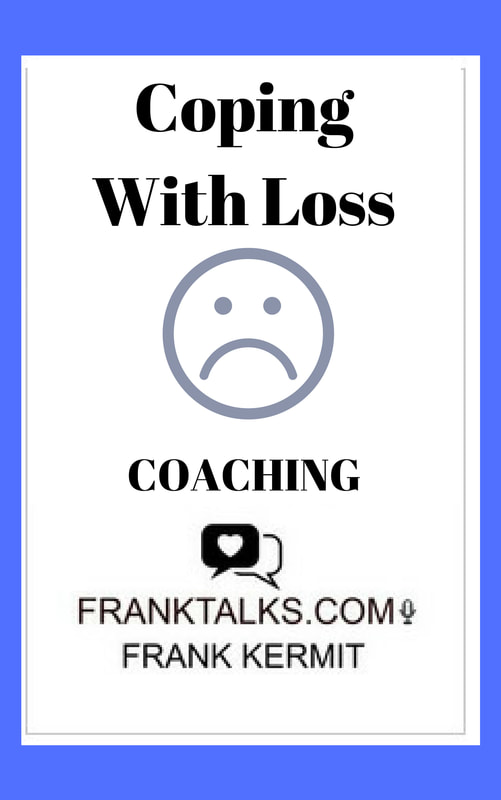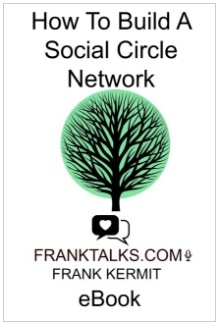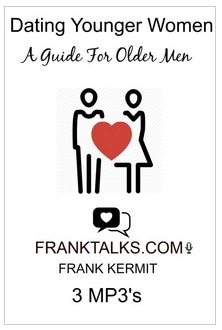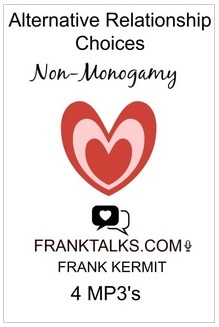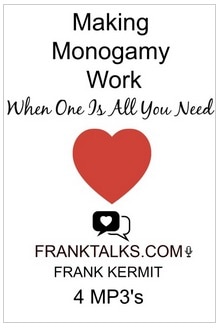|
Bad Sex? Speak Up! by Kristin Casey In response and review of a New Your Magazine Article As an intimacy coach, my time is spent immersed in topics of dating, relationships, and sexuality. Aside from working directly with clients, I keep up on relevant research, articles, books, opinion pieces, and the occasional, well-thought-out blog. A variety of evolving attitudes and perspectives informs my work and feeds my passion. Half of what I read is inspiring and encouraging. The other half…not so much. A recent piece in NYMag.com (a copy of said article is at the bottom of this post, for the purposes of fair use fair copying as a review of the article, and to provide a balanced perspective) relayed the experiences of female college students, a diverse population of smart, savvy, autonomous adults, who feel something between chagrined and victimized, by a widespread epidemic of bad sex. The premise of the article seems to be that this situation needs further interrogation. That this “vast expanse of bad sex — joyless, exploitative encounters that reflect a persistently sexist culture” needs to be acknowledged. The question is, by whom? If, like me, you’re thinking by the dissatisfied women’s partners, of course, you’ll want to read on. Here are a few key points from the article:
The above sampling of learned helplessness is not an anomaly. I hear this stuff from women all the time, daily, in person and online. I’ve been hearing it since my teens. (I’m currently 49.) I could write a book on this topic, and maybe someday I will. For now, my question is, Where is the accountability? Where is any attempt to take personal responsibility for one’s choices, behavior, and sex life? Where is any indication these women understand they have as much control as the man in bed—as much as they choose to wield, in fact—and with that control comes not just the power but the duty to be as “good” as they expect him to be? My next question is, what is this nebulous force “campus feminism” and why is it tasked with addressing these women’s problem? Why aren’t the sexually dissatisfied women—presumably feminists themselves—addressing it with their individual sex partners? (I hate to point out the obvious, but honestly, I feel like I just solved their entire problem.) This quote from the article is most illuminating. A 29-year-old editorial director of a well-known feminist website, has just described her longstanding unsatisfying sex life. She winds up feeling bad for not having done the work of telling her partners how to make her feel good. “What I want is not for me to have that burden. I want one of my male partners, who are wonderful men who care about me, to have just once been like, ‘No, this is unacceptable to me. I’m not going to continue to have sex with you when you’re not getting off!’ And I can’t imagine that happening.” To be clear, this thing she pines for yet can’t imagine happening, is a fairytale scenario, akin to waving a hanky for a prince to ride up to save her. Is this what we’re calling empowerment now? Is this how “campus feminism”—or any feminism—works? (No, it’s absolutely not.) The burden? The “burden” of learning what brings a woman sexual pleasure belongs to her alone. The burden of conveying that information to her partner(s) is also hers alone. It’s not only unreasonable to place the burden on men, it’s illogical. Even more absurd, is an outspoken, influential feminist stating on record, without a hint of irony, that she can’t be expected to experience sexual pleasure until it’s presented to her, by a man, on a silver platter. This isn’t how feminism works. More importantly, it’s not how good sex works. Yet this willful obtuseness is pervasive. A few examples off the top of my head:
The above anecdotes were shared amongst women only, done so after the fact. More recently, I witnessed an online verbal attack directed at a man. On a popular feminist blog, in the comment section, a thoughtful and sensitive young man expressed insecurity about his general datability and sexual performance. He then made a casual observation suggesting women have it easier in bed (since women, more than men, are given the option to be passive during sex). It didn’t go over well. He was verbally abused, rudely shut down, and blatantly denied the space to share his honest experiences, simply because they weren’t in-line with the going narrative, constructed by female commenters—a narrative, I might add, about the male experience. One reply in particular, struck me as exceptionally insensitive. An angry, accusatory young woman refused to believe this man (or any man) could be effected by expectations beyond that of his current partner. She said all he had to do was find an understanding girlfriend and “boom.” He’d cease to feel stress, pressure, or self-doubt about his manliness. She insisted societal expectations weren’t a “thing” for men. They’re only a thing for women. This, on a website known for long thought pieces on rape culture, internalized misogyny, fat shaming, cat calling, trigger warnings, safe spaces, and bullying in all forms. (Well, almost all forms, it would seem.) Compassion For Men It is stressful for a man to enter every sexual scenario believing his “man badge” is on the line. Why is that hard to believe? (Especially by women who find it overwhelmingly stressful to say anything along the lines of “please touch me differently.”) A man’s entire life is comprised of win/lose moments. They’re raised to be competitive, to earn their stripes by impressing the rest of The Pack. These rigid masculine roles are so ingrained as to be systemic. Men are bombarded from all directions, by parents, peers, society at large, and their own internalized image of what “real” men are. Of course, some women are ambitious too and prioritize career success, but in our society that’s considered their option. For men, it’s an expectation. It’s placed on them at birth. That burden is integral to the male experience. Men labor (literally) under the belief they’re 100% responsible for every success or failure in life, including every sexual encounter. That’s how sex becomes about scoring points and being a stud, versus sharing intimacy and pleasure with a partner. Complicit in this skewed vision of what constitutes “good sex” is every woman who wanted something different—more foreplay, a softer touch, less tongue, more tongue, or whatever special (or banal) thing happens to turn her on—and failed to convey those specific desires to her partner. It’s time for archaic gender roles to be put to bed (so to speak). But if men are to shift their perspective—if we expect them to drop the “stud role,” with its performance-oriented approach to sex—what then? As is made clear in the NYMag article, women can’t or won’t state their needs, much less take charge in bed. If they’re so unhappy with the way men are doing it, when will they ever speak up? When will they become participants in bed, instead of passive, silent, disgruntled audience members writing scathing reviews after the fact? The dissatisfied women in the article cited power imbalances as the cause of all their problems. In a way, I suppose that’s true. Yet women can reclaim their power at any time by 1) finding their voices and 2) using them. And not to freelance journalists or to each other, but to their male partners. Women who cannot ask for what they want in bed, shouldn’t even be having sex. They’re better off in a tower somewhere, waving a hanky out the window, awaiting a fairytale prince to save them. About The Author Kristin Casey is an intimacy coach in Austin, Texas. She works exclusively with male clients, specializing in overcoming performance anxiety, dissociation, various forms of dysfunction, and related intimacy issues. http://www.KCaseyConsulting.com www.Facebook.com/IntimacyCoachATX *Disclaimer: the views of the author do not necessarily represent the views of Franktalks.com. It is important to present different views/mindsets, and that includes material that may be deemed controversial in nature. **Disclaimer: The Articles produced in this post were written by the authors and all rights, titles and interests in these articles belong to the authors (or whoever they assigned those rights too). These articles are published here and are used herein under Fair Use and Fair Copying for the purposes of reviews, and remain the property of the author. SEX ON CAMPUS The Game Is Rigged Why sex that’s consensual can still be bad. And why we’re not talking about it. By Rebecca Traister Last winter, Reina Gattuso was a Harvard senior majoring in literature and gender studies and writing a biweekly column for the college newspaper, the Crimson. She covered a variety of subjects, among them her sexuality (she identifies as queer) and Harvard’s byzantine class hierarchies, and she wrote a regular feature called “Four Dollar Wine Critic.” In February, she dedicated her column to the subject of sexist sex. Gattuso is not against sex by any means. “I don’t say yes. I say oh, yes. I say yes, please,” she wrote. And she did say yes at a booze-soaked party hosted by a group of men she didn’t know. One of the men told her that because she was bisexual, he assumed she was “particularly down to fuck.” He said she could make out with his girlfriend if she would hook up with another of the men. “I have so much to drink my memory becomes dark water, brief flashes when I flicker up for air,” Gattuso wrote. “I’m being kissed. There’s a boy, then another boy. I keep asking if I’m pretty. I keep saying yes.” But in the morning, she wrote, “I feel weird about what went down” and was unsure how to express her feelings of dissatisfaction and confusion over “such a fucked-up experience.” Eventually, she realized that what she was grappling with was not just the night in question but also the failure of campus feminism to address those kinds of experiences. We tend to talk about consent “as an individual process,” she wrote, “not asking ‘What kinds of power are operating in this situation?’ but only ‘Did you or did you not say yes?’ ” Feminists, she continued, “sometimes talk about ‘yes’ and ‘no’ like they’re uncomplicated … But ethical sex is hard. And it won’t stop being hard until we … minimize, as much as possible, power imbalances related to sex.” It may feel as though contemporary feminists are always talking about the power imbalances related to sex, thanks to the recently robust and radical campus campaigns against rape and sexual assault. But contemporary feminism’s shortcomings may lie in not its overradicalization but rather its underradicalization. Because, outside of sexual assault, there is little critique of sex. Young feminists have adopted an exuberant, raunchy, confident, righteously unapologetic, slut-walking ideology that sees sex — as long as it’s consensual — as an expression of feminist liberation. The result is a neatly halved sexual universe, in which there is either assault or there is sex positivity. Which means a vast expanse of bad sex — joyless, exploitative encounters that reflect a persistently sexist culture and can be hard to acknowledge without sounding prudish — has gone largely uninterrogated, leaving some young women wondering why they feel so fucked by fucking. Feminism has a long, complicated relationship to sex, one that has cycled from embrace to critique and back again. By the time a generation of women woke feminism from its backlash slumber around the millennium, the sex wars of the 1980s were long over. Some second-wave feminists, including Andrea Dworkin and Catharine MacKinnon, had seen sex, pornography, and sexism as all of a piece, finding it impossible to pick the strands of pleasure from the suffocating fabric of oppression. So-called sex-positive feminists — Ellen Willis, Joan Nestle, Susie Bright — set themselves against what they saw as this puritanical slant. The sex-positive crusaders won the war for a million reasons, perhaps especially because their work offered optimism: that sexual agency and equality were available to women, that we were not destined to live our sexual lives as objects or victims, that we could take our pleasures and our power too. They won because sex can be fun and thrilling and because, for the most part, human beings want very badly to partake of it. So it was only natural that when feminism was resurrected by young women creating a new movement, it was self-consciously sex friendly, insouciant in its approach to the signs and symbols of objectification. No one would ever mistake these feminists for humorless harridans or frigid dick-rejectors. But the underpinning philosophy had shifted slightly. Sex positivity was originally a term used to describe a theory of women, sex, and power; it advocated for any kind of sexual behavior — from kink to celibacy to conscious power play — that women might enjoy on their own terms and not on terms dictated by a misogynistic culture. Now it has become shorthand for a brand of feminism that was a cheerleader for, not a censor of, sex — all sex. Feminism’s sexual focus narrowed in on one issue: coercion and violence. Sex that took place without clear consent wasn’t even sex; it was rape. In this line of thinking, sex after yes, sex without violence or coercion, is good. Sex is feminist. And empowered women are supposed to enjoy the hell out of it. In fact, Alexandra Brodsky, a Yale law student and founder of anti-rape organization Know Your IX, tells me that she has heard from women who feel that “not having a super-exciting, super-positive sex life is in some ways a political failure.” Except that young women don’t always enjoy sex — and not because of any innately feminine psychological or physical condition. The hetero (and non-hetero, but, let’s face it, mostly hetero) sex on offer to young women is not of very high quality, for reasons having to do with youthful ineptitude and tenderness of hearts, sure, but also the fact that the game remains rigged. It’s rigged in ways that go well beyond consent. Students I spoke to talked about “male sexual entitlement,” the expectation that male sexual needs take priority, with men presumed to take sex and women presumed to give it to them. They spoke of how men set the terms, host the parties, provide the alcohol, exert the influence. Male attention and approval remain the validating metric of female worth, and women are still (perhaps increasingly) expected to look and fuck like porn stars — plucked, smooth, their pleasure performed persuasively. Meanwhile, male climax remains the accepted finish of hetero encounters; a woman’s orgasm is still the elusive, optional bonus round. Then there are the double standards that continue to redound negatively to women: A woman in pursuit is loose or hard up; a man in pursuit is healthy and horny. A woman who says no is a prude or a cock tease; a man who says no is rejecting the woman in question. And now these sexual judgments cut in two directions: Young women feel that they are being judged either for having too much sex, or for not having enough, or enough good, sex. Finally, young people often have very drunk sex, which in theory means subpar sex for both parties, but which in practice is often worse (like, physically worse) for women. As Olive Bromberg, a 22-year-old genderqueer sophomore at Evergreen State, sees it, modern notions of sex positivity only reinforce this gendered power imbalance. “There seems to be an assumption that is ‘Oh, you’re sexual, that means you’ll be sexual with me,’” Bromberg says. “It feeds into this sense of male sexual entitlement via sexual liberation of oneself, and it’s really fucked.” And again, this is all part of consensual sex, the kind that is supposed to be women’s feminist reward. There’s a whole other level of confusion around the smudgy margins when it comes to experiences like the one I had at college 20 years ago. It was an encounter that today’s activists might call “rape”; which feminist hobgoblin Katie Roiphe, whose anti-rape-activist screed The Morning After was then all the rage, would have called “bad sex”; and which I understood at the time to be not atypical of much of the sex available to my undergraduate peers: drunk, brief, rough, debatably agreed upon, and not one bit pleasurable. It was an encounter to which I consented for complicated reasons, and in which my body participated but I felt wholly absent. “A lot of sex feels like this,” Gattuso wrote in May, after her popular Crimson columns drew the attention of Feministing, a website at which she has since become a contributor. “Sex where we don’t matter. Where we may as well not be there. Sex where we don’t say no, because we don’t want to say no, sex where we say yes even, when we’re even into it, but where we fear … that if we did say no, or if we don’t like the pressure on our necks or the way they touch us, it wouldn’t matter. It wouldn’t count, because we don’t count.” This is not pearl-clutching over the moral or emotional hazards of “hookup culture.” This is not an objection to promiscuity or to the casual nature of some sexual encounters. First of all, studies have shown that today’s young people are actually having less sex than their parents did. Second, old-fashioned relationships, from courtship to marriage, presented their own risks for women. Having humiliating sex with a man who treats you terribly at a frat party is bad but not inherently worse than being publicly shunned for having had sex with him, or being unable to obtain an abortion after getting pregnant by him, or being doomed to have disappointing sex with him for the next 50 years. But it’s still bad in ways that are worth talking about. Maya Dusenbery, editorial director at Feministing, says that she increasingly hears questions from young women on college campuses that are “not just about violence but all the other bullshit they’re dealing with sexually — how they can get guys to get them off, for instance. I think they need feminists to put forth a positive alternative vision for what sex could be and isn’t. And it’s not just about rape. That’s not the only reason that sexual culture is shitty.” And it’s not as if that culture disappears upon graduation. Dusenbery, who is now 29, speaks of her “great feminist shame”: After a decade of sexual activity, she very often still doesn’t get off. “In one way that feels so superficial, but then, if I believe sexual pleasure is important, that’s terrible! Come on, Maya! Communicate!” She winds up feeling bad for not having done the work of telling her partners how to make her feel good. “What I want is not for me to have that burden. I want one of my male partners, who are wonderful men who care about me, to have just once been like, ‘No, this is unacceptable to me. I’m not going to continue to have sex with you when you’re not getting off!’ And I can’t imagine that happening.” Gattuso, who is now on a Fulbright fellowship in India, writes to me in an email: “I sometimes think that in our real, deep, important feminist desire to communicate that sexual violence is absolutely and utterly not okay … we can forget that we are often hurt in ways more subtle and persistent … And we can often totally forget that at the end of the day, sex is also about pleasure.” Pleasure! Women want pleasure, or at least an equal shot at it. That doesn’t mean some prim quid-pro-quo sexual chore-chart. No one’s saying that sex can’t be complicated and perverse, its pleasures reliant — for some — on riffing on old power imbalances. But its complications can and should be mutually borne, offering comparable degrees of self-determination and satisfaction to women and men. After all, sex is also, still, political. Contemporary feminism asks us to acknowledge that women “can have as many partners as men, initiate sex as freely as men, without being brutalized and stigmatized, and that’s great,” says Salamishah Tillet, a professor of English and Africana studies at the University of Pennsylvania and a co-founder of A Long Walk Home, an organization that works to end violence against women. The problem arises, she continues, with the feeling that “that alone will mean we’re equal. That alone is not an answer to a system of persistent sexual domination or exploitation. These women are still having these encounters within that larger structure, and men are not being asked to think of the women having sex as their equal partners.” The black feminist tradition has never completely bought into sex positivity as a means toward a political end. Stereotypes of hypersexualization have always made it harder for black women to be believed as victims of sexual assault and also made it harder for them to engage in a sex-positive culture. Just last year, bell hooks startled an audience during an interview by suggesting that “the face of … liberatory sexuality” for black women might be celibacy. I am not suggesting that contemporary feminism do away with its sex-positive framework or with its anti-rape activism. But it may need to add a new angle of critique. Describing the strain of popular sex positivity often simply understood as “You get it, girl,” Brodsky says, “I think of it sometimes as Lean In for good sex. In that there are these structural factors that are conspiring against terrific sex, but at work or in the bedroom, if you have the magic word, if you try hard enough, if you are good enough, you can transcend those.” Like Lean In, this kind of sex boosterism can be very valuable. But, continues Brodsky, we need to add to it, just as we do in the workplace. “We need both collective solutions and individual solutions.” Dusenbery imagines a world in which feminists stop using the language of combat — as in combating rape culture — and instead set out to promote a specific vision of what sexual equality could entail. “It would include so much more: from the orgasm gap to the truly criminal sexual miseducation of our youth to abortion rights to the sexual double standard. Broadening the scope would not only push us to provide the same kind of deep analysis that’s been developed around rape culture in recent years but also help us better see the connections between all the inequities in the sexual culture.” One thing that’s clear is that feminists need to raise the bar for women’s sex lives way, way higher. “Sure, teaching consent to college freshmen may be necessary in a culture in which kids are graduating from high school thinking it’s okay to have sex with someone who is unconscious,” says Dusenbery. “But I don’t want us to ever lose sight of the fact that consent is not the goal. Seriously, God help us if the best we can say about the sex we have is that it was consensual.” *This article appears in the October 19, 2015 issue of New York Magazine.
5 Comments
6/1/2017 01:55:27 pm
Thank you for this insightful writing. You nailed the experience and the solution very clearly and simply. Interesting that the women can't recognize what they are asking for when it shows up (the caring man who asks them about their desires).
Reply
6/1/2017 07:58:20 pm
Corey,
Reply
Sarah
6/2/2017 09:06:43 pm
Thanks for this piece. It really speaks to me and my personal experience of bad sex as a young woman...
Reply
6/5/2017 04:13:23 pm
Sarah,
Reply
Leave a Reply. |
Categories
All
Archives
June 2024
NDG Encore Singing Chorus **** Every Friday Night Dr. Laurie Betito Quotes
|
|
FRANK KERMIT MA
EXPERT RELATIONSHIP COACH HELPING PEOPLE CONNECT |
ALL COACHING IS BY TELEPHONE OR SKYPE ONLY INTERNATIONAL CLIENTS ARE WELCOME *INTERNATIONAL CLIENTS ARE RESPONSIBLE FOR LONG DISTANCE PHONE CHARGES, +1 Canada/USA* SKYPE IS PREFERRED. IT'S FREE AND EASY TO USE FROM ANYWHERE IN THE WORLD TELEPHONE: +1-514-680-3278 EMAIL: [email protected] SKYPE: frank kermit PLEASE NOTE THAT ALL SALES ARE FINAL. NO REFUNDS OR EXCHANGES
|

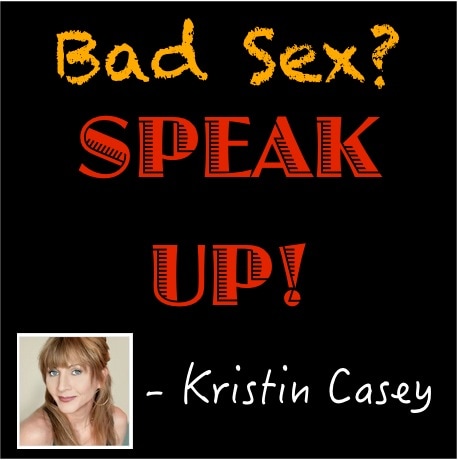
 RSS Feed
RSS Feed


















